ABOUT THE AUTHORS
Laura Wayman
With over a decade of experience and a strong dedication to quality aging, Laura Wayman holds an associates degree in gerontology and is a certified social services designee. Her innovative approach to the caregiving process has given her valuable insights into how caregivers can enhance and even enjoy their relationships with their loved ones or clients. During her career, she has developed the affirmative response method, an easy-to-learn, easy-to-apply communication style for connecting with the person who has dementia. As a result, she is a sought-after speaker with extensive experience in keynote addresses and break-out programs. Laura also teaches her becoming dementia-aware care approach and communication techniques at a local community college in northern California. She provides in-service training for assisted living, memory care, skilled nursing, and in-home professional caregivers on gentle and effective redirection tools and a communication approach that works. She is often invited to educate caregivers about how to become dementia-aware, helping them to learn effective techniques, and directing them to further dementia-aware community resources.
Contributing author Alicia Murray, B.A. Gerontology, M.A. Organizational Leadership, has hands-on experience in the assisted living and memory care field. She has done extensive research on the dementia caregiving industry, focusing on individualized plans that allow for all residents to experience homelike feelings of safety and security within the memory care setting. Alicia is able to identify and utilize flexible techniques with the goal of helping to maintain independence and quality of life during the progression of Alzheimers disease and related dementias. Alicia encourages her care staff to facilitate creative activities, respecting the uniqueness of each community and individual. With her engaging approach, she helps caregivers learn to take better care of themselves while continuing to provide each resident with care in ways that can be both meaningful and enjoyable.
Contributing author Denise Pedersen is a certified grief recovery specialist. In 2004, as a result of having lost her oldest child, Sean, in an automobile accident, she founded the Sean Sullivan Project to reach out and help bereaved families in the Roseville/Sacramento, California, area. This project has become an important grief support group in the northern California area, and Denise has personally reached out to hundreds of hurting people after the loss of a child. In February 2010, Denise married Alan Pedersen, an award-winning songwriter, successful recording artist, and nationally recognized speaker on grief and loss. A few days later they began the Angels across the USA 2010 Tour (www.AngelsAcrosstheUSA.com, DenisePedersen2010@gmail.com), sponsored in part by bereaved families. The goal of this tourwith visits to more than 120 cities and at least one concert event in each of the forty-eight contiguous stateswas to raise community awareness and draw media attention to local grief organizations that provide resources for the bereaved.
The Dementia-Aware Guide to Caregiving

Congratulations! You are now well on the road toward becoming a dementia-aware caregiver. Every dementia care journey is uniqueand you can also expect that the landscape will be constantly changing. Whether you are a family caregiver or a professional caregiver, it is important to remain adaptable with your care approach so you can successfully manage the dementia-related symptoms and behaviors in the moment.
Even with all of the lessons offered in this book, you may still have reservations about how to be a dementia-aware caregiver on a day-to-day basis. While it is important to individualize care approaches to the singular circumstances presented, there are many common challenges associated with dementia. To support you with caring for your loved one, client, or resident, this Dementia-Aware Guide to Caregiving is a quick reference tool for responding to difficult behaviors, as well as a way to practice this essential change in your care approach. As you read the examples below, begin to evaluate each challenge and consider options to put into practice for your individualized dementia-aware care approach. Then as you read the successful dementia-aware care approach these caregivers chose, reflect on whether your care approach choice was similar. You can even go a step further and think of other options, or a combination of options, that might also provide successful care outcomes.
Here is a dementia reality mantra that is useful to many people: I cannot stop, change, or fix the dementia symptoms or behaviors. Instead, I can only manage them. As you begin each day in your caregiving role, it is valuable to be mindful of this mantra. You may even want to recite it out loud.
Practice and utilize the tools in this Dementia-Aware Guide to Caregiving so you may enjoy more positive and loving care outcomes. I want to take this opportunity to remind you that you are doing a great job! Keep up the good work! You make a difference!
Challenges with Personal Hygiene
Getting dressed, taking a shower, and brushing teeth can be very complex tasks for a person living with dementia because of the many steps involved. For individuals with dementia, this process is laden with too much information. Another obstacle is that some people with dementia may have an altered sense of hot and cold, since the disease has damaged the region of their brains that controls their internal thermostats. They may even feel abnormal sensations from the water itself. This adds another layer of complexity to bathing and showering. All of these factors make maintaining personal hygiene a significant obstacle for some caregivers.
Strategies
Offer the person limited choices and do not ask questions. For example, you can say It is time to take a bath or Come with me.
Break down the tasks into simple steps and calmly and patiently explain each step, using easy-to-understand directions and respectful, affirming language. Lift up your arms. Lets put on this shirt. You look nice!
Encourage the person to do as much as possible on his or her own, whether brushing teeth or using soap and a washcloth.
Lay out the soap, washcloth, towel, and clean clothes in sequence so the person with dementia can participate in each step in the task.
When assisting with showering or bathing, use reassuring language like This water feels good. Let the person touch the water before getting into the bath or shower. Sometimes gently pouring water over the persons hands will help him or her relax. Or start with a basic foot soak and work your way up.
Honor the persons sense of modestyuse a towel to cover sensitive areas while you assist with the washing of arms, legs, and back, or allow the person to remain partially dressed during the process.
Accept that there will be good days and bad days. If you are encountering extreme resistance that could escalate into a worse situation, let the task go. Try again when the person appears calmer and more receptive, perhaps the next morning or before bed.
A dementia-aware caregiver will evaluate what the person is feeling.
 Listen to what the person is sayingnot just the words, but observe his or her facial expressions and actions.
Listen to what the person is sayingnot just the words, but observe his or her facial expressions and actions.
 Smile, breathe and relaxyour calmness will comfort the person and reduce agitation.
Smile, breathe and relaxyour calmness will comfort the person and reduce agitation.


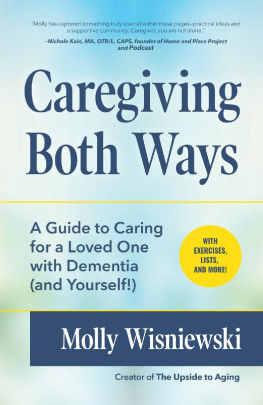
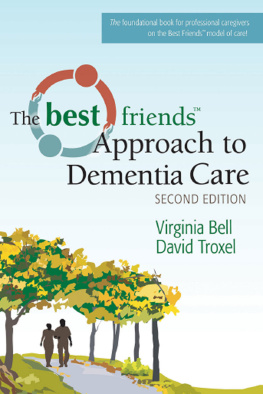
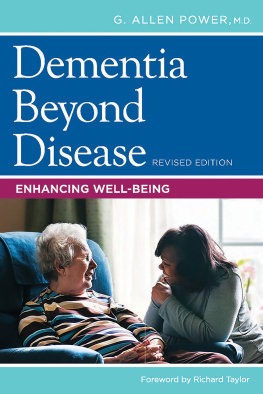
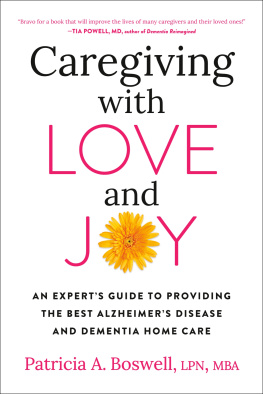
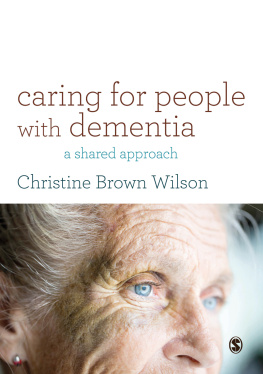
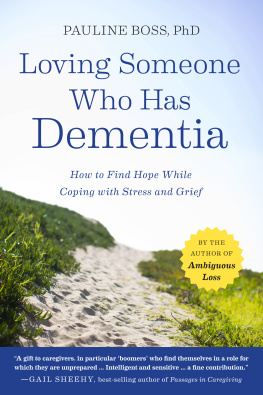

 Listen to what the person is sayingnot just the words, but observe his or her facial expressions and actions.
Listen to what the person is sayingnot just the words, but observe his or her facial expressions and actions.